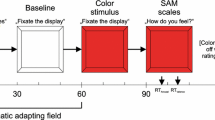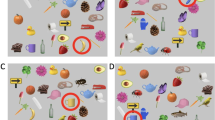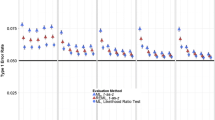Summary.
Detection probabilities in sensory psychology are sometimes represented by a gain control equation, such as P(x,y) = F[(u(x) —g(y))/h(x)]. Here, x and y are positive real numbers denoting ratio scale values of physical energies, P(x,y) is the probability of detecting stimulus x over background y, and u, g, h and F are real valued, continuous, strictly increasing functions. In some situations (e.g. in psychophysics), the researchers investigate empirically the detection phenomenon via the function μ satisfying \( \mu (x ; \rho) = y \Leftrightarrow P(x, y) = \rho \). A reasonable model to consider for the function μ is offered by the power law representation \( \mu (x;\rho )= x^{\zeta (\rho)} K(\rho) \), in which \( \zeta \) and K are nonconstant functions of \( \rho \). In this paper we study the consistency of these gain control and power law representations. The main result is that, under some background conditions, if the gain control and the power law representations jointly hold, then the detection probability P takes necessarily the form \( P(x,y) = F\left [\alpha - \left ( (\gamma \ln y -\theta )/ ( \ln x + \delta ) \right )^{\beta } \right ] \). The form of the function F is arbitrary. Our proof is based on the solutions of the functional equation \( \varphi(t v(s) + w(s)) = s\,k(t) + f(t) \).
Similar content being viewed by others
Author information
Authors and Affiliations
Additional information
Received: November 25, 1998; revised version: May 25, 1999.
Rights and permissions
About this article
Cite this article
Falmagne, JC., Lundberg, A. Compatibility of gain control and power law representations — a János Aczél connection. Aequ. math. 60, 201–210 (2000). https://doi.org/10.1007/s000100050146
Issue Date:
DOI: https://doi.org/10.1007/s000100050146




